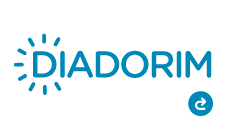Tio Vânia
Um Primeiro Aceno Indagador Para o Futuro Do Grupo Galpão
DOI:
https://doi.org/10.35699/2238-2046..15643Abstract
In the course of the last three years, the Group Galpão invested in spectacles whose languages and themes inquire the imaginary fixed through-out its 30 year history. Once the latest piece, The Giants of the Mountain, represents a theater company whose poetic has no place or public in an hostile world, it joins a movement of self-exam-ination of their own theater making whose start-ing point can be considered the project Journey to Chekhov. In this context, this article focuses on the critical analysis of “Uncle Vanya – To those who come after us” (2011), as the first Galpão’s work to take the risk of self-questioning, moving from a supposed comfort zone. Affected by questions of identity caused by this movement of change and by discussions about the future expressed in Chekhov’s pieces, Galpão’s actors experienced a psychological realism unprecedented in its reper-toire and, consequently, a construction of charac-ters exploring acting resources which they were not familiarized and, thus, opening uncharted paths within their own history.
References
WILLIAMS, Raymond. Tragédia Moderna. São Paulo: Cosac Naify, 2002.
Downloads
Published
Issue
Section
License
Copyright (c) 2013 Luciana Eastwood Romagnolli

This work is licensed under a Creative Commons Attribution-NonCommercial 4.0 International License.
Authors who publish in this journal agree to the following terms:
- Authors retain copyright and grant the journal the right of first publication, with the work simultaneously licensed under the a Creative Commons Attribution-NonCommercial 4.0 International License that permits sharing of the work with acknowledgement of authorship and initial publication in this journal;
- Authors are permitted to enter into additional contracts separately, for non-exclusive distribution of the version of the work published in this journal (e.g., the Creative Commons Attribution License).
- Authors are permitted and encouraged to publish and distribute their work online (e.g., in institutional repositories or on their home page) at any point before or during the editorial process, as this may generate productive changes as well as increase the impact and citation of the published work.
- It is the responsibility of the authors to obtain written permission to use in their articles materials protected by copyright law. Revista PÓS is not responsible for copyright breaches made by its contributors.












